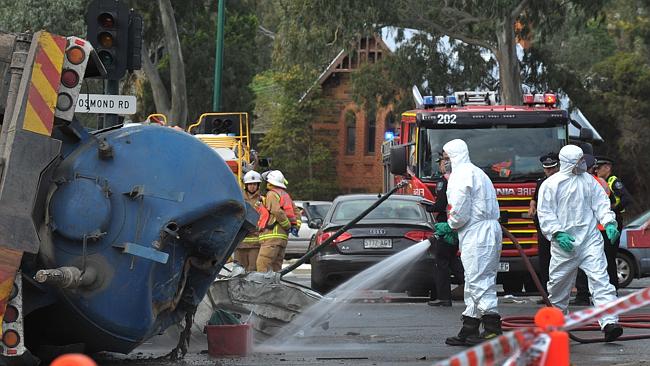
No one anticipates a hazardous spill, but the possibility still exists wherever hazardous materials are used, transported or stored. Rarely is an accident of that degree expected, but it’s essential to have a plan in place for immediate response. Not only does being ill-prepared cause a risk to your employees, but having an emergency response plan in place can reduce the loss of money, time and even regulatory fines for your company.
Hazardous Spill Planning
Having an emergency response plan in place is the first step in preparing for the possibility of a hazardous waste spill. While maintaining a hazmat team can require an investment in time, the outcome is invaluable in the face of a hazardous spill. This plan is very detailed and includes training with hands-on instruction for response techniques to ensure your team is ready for the worst case scenario. An emergency response protocol can include:
- Pre-emergency on-site assessment
- Development of health and safety programs
- Annual medical examinations for employees
- Recurring OSHA training on a scheduled basis
- Training for decontamination procedures
There are also equipment requirements that are part of this protocol. What your company needs for safety equipment may vary depending on the hazardous materials you handle, but generally, this includes air monitoring and breathing equipment, protective clothing, and other tools to help staunch the accident safely.
Risk Assessment
If a spill happens, before doing anything else, trained employees should assess the risk and severity of the accident. A few factors to consider when determining next steps to take include:
- Type of waste spilled
- Hazardous properties of the material, such as toxicity or flammability
- Volume of the spilled material
- Degree of hazard
- Physical state of the material and any physical properties
- Circumstances of the spill, including location, amount of ventilation, and the hazardous waste experience of employees in the spill area
Accident Reporting
Immediate reporting is required in the case of a hazardous waste spill. Whether you are an owner, operator, manager or employee, it is your responsibility to report a significant hazardous spill to the appropriate authorities as soon as it happens.
Agencies to notify can include your local emergency response team such as the fire department or local highway patrol if the spill happens during transport.
Following Legal Requirements
Making sure to comply with all local, state and federal laws can be complicated, but is extremely important. Legal requirements change and as new laws are passed, it is your responsibility to state up-to-date to ensure you’re in compliance.
Hiring a Hazardous Waste Management Specialist
If staffing an in-house emergency response team is not an option, an alternative to the comprehensive training needed is to outsource the services of a hazardous waste management company. Working with a qualified professional will help ensure the appropriate steps are taken to alleviate the spill while keeping your team safe. They will also remain in compliance with legal regulations and work with you to find the best solutions available.
MLI Environmental has provided comprehensive hazardous waste management services throughout New England for more than a decade. Specializing in dangerous goods shipping and hazardous waste disposal and management, we can support your company with all hazardous waste needs. To learn more about our services, contact us today!
